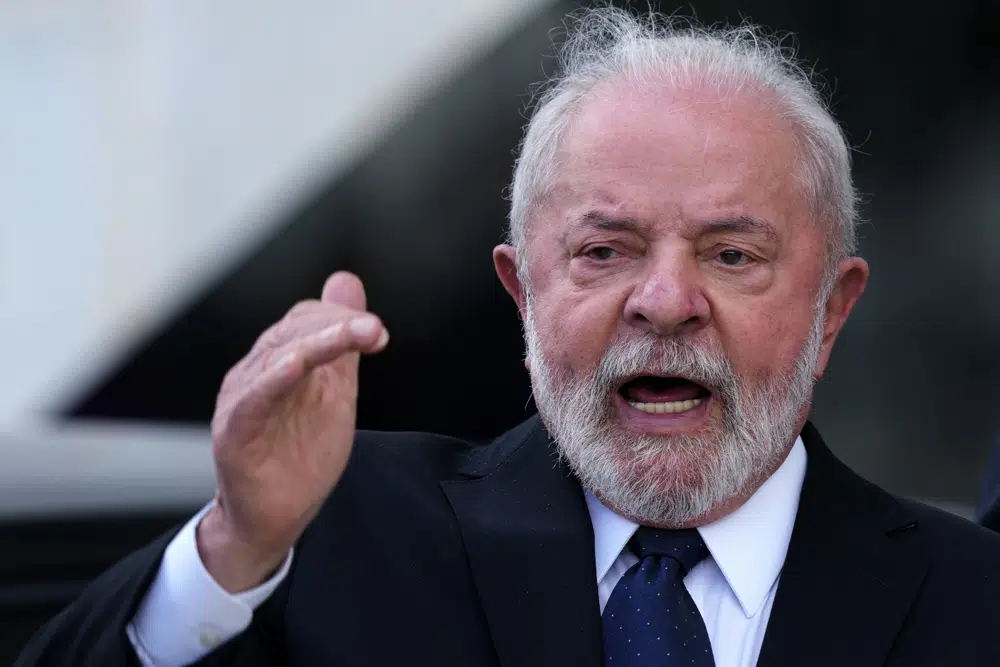The United Auto Workers (UAW), one of the largest labour unions in the US, has praised Trump’s move to impose 25 percent tariffs on imported cars, calling the decision a step towards ending the “disaster” of free trade agreements.
UAW President, Shawn Fain said in a statement, “Ending the race to the bottom in the auto industry starts with fixing our broken trade deals, and the Trump administration has made history with today’s actions.”
He called on the US President to strengthen labour rights and protections.
Meanwhile, there have been reactions from foreign car manufacturers about Trump’s tariffs.
Germany’s BLG Group, the port logistics provider for one of the world’s busiest auto shipping terminals in Bremerhaven, said that it was planning for a 15 percent reduction in traffic.
In Spain, the second-largest vehicle manufacturing country in the EU, car dealer association Faconauto said that a drop in demand for Spanish-made cars and parts could impact employment and future investment in the region.
French car parts supplier, Valeo stated that it would have no choice but to hike prices.
BMW, also a major exporter of cars from the US to Europe, said that a trade conflict between the two economic regions would not have any benefits. “Both sides should therefore promptly find a transatlantic deal that creates growth and prevents a spiral of isolation and trade barriers,” it said in a statement.
Ferdinand Dudenhoeffer, Head of the Germany-based Center for Automotive Research, opined that there will be no real winners from Trump’s auto tariffs. “Everybody will lose. The Americans will lose; Trump will lose, but especially the German car industry [will lose],” Dudenhoeffer told a news agency.
He added that any gains for US manufacturing – as Trump foresees companies rushing to build cars in the country – will not be immediate because it takes time to build production facilities.
He explained that instead, a trade war will raise prices for American consumers and incur losses on the US economy.
He said that Trump is looking to cause damage to foreign industries and he called on Germany to confront his moves. “We should really think of retaliation. There is no solution with Trump on the bargaining table,” Dudenhoeffer said.
Similarly, Moritz Kronenberger, Portfolio Manager at Union Investment in Frankfurt, Germany, stated that the newly announced US auto tariffs will lead to higher costs for American consumers. “The belief that prices could be passed on and would be unconditionally accepted by consumers is naive,” Kronenberger said.
“Car prices in the USA will rise. Only cars manufactured in the USA can be kept somewhat stable, but the entire supply chain will be affected by the tariff disruption.
“Ultimately, this will lead to declining volumes of new cars, inefficiencies in factory utilisation, and significantly lower margins, free cash flows and ultimately earnings.”
Moritz Kronenberger
Trump Told To Consider Tariffs’ Potential Harm

Meanwhile, Brazilian President, Luiz Inacio Lula da Silva said that Trump should consider the potential harm that his tariffs policy will have on the American and global economies.
Speaking through an interpreter as he wrapped up a four-day visit to Japan, Lula expressed concern about the “behaviour of the American government.”
“I am concerned because free trade is being harmed and I am concerned because multilateralism is weakened.”
Luiz Inacio Lula da Silva
Lula said that he foresees no positive outcome from Trump’s policy of raising tariffs given that they will raise prices for American consumers, adding to inflation and leading to higher interest rates that might stifle economic growth.
He added that Trump is President only of the US, not the world, and that “this protectionism does not help any country in the world.”
READ ALSO: DRC Faces Record Hunger Crisis Amid Conflict























